After seeing them live in Milan last April 2nd, we had the chance to talk with Samantha Fish and Jesse Dayton about their project, “Death Wish Blues“, which is out now on Rounder /Universal Records. Those who follow closely the blues and all its branches are probably already familiar with Samantha Fish, we had dedicated an interview and the front cover of our issue n. 148. Maybe it is a little less so with Jesse Dayton, versatile singer and guitarist in his own way. Dayton, a Texan from Beaumont, has been active since the nineties playing country, punk, roots… and he is a man of many sessions, including ones with Johnny Cash or Kristofferson, beside being the author of a fine tribute to Kinky Friedman and unexpected ventures in the movies.
Was there any surprise about the outcome of your collaboration?
Samantha Fish: I was surprised at myself I think I was worried that I was gonna feel a little more rigid about how things were turning out. I was kind of amazed of the power of collaboration, it sort of actually was bringing in a way. I took chances that maybe I would be more hesitant to take on a solo album because you have this construct for yourself about what you think you should be as an artist. Opening up to a collaboration is cool because it was like, I can do whatever I want, it’s something totally different from what I do on my own. And we kinda came into some really magical moments, because we let that guard down. We committed fully to this project. I was surprised at how much I got to grow as an artist.
Jesse Dayton: I kinda feel the same way. I think once we really trusted each other and we became vulnerable, we would try things we would not normally try. Not to mention neither one of us are carrying 100% so we can kinda lean on each other for our strenghts and weaknesses. I am still amazed post recording about the live interpretations of the songs, the choices we make.
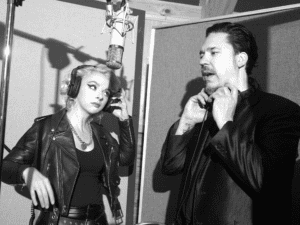 Did it take a while to open up to each other? Sitting down writing a song I think requires another level of intimacy and it does not happen automatically.
Did it take a while to open up to each other? Sitting down writing a song I think requires another level of intimacy and it does not happen automatically.
SF: No it doesn’t. And the first time Jesse and I sit down to write, he flew to New Orleans and we sat down in a reahearsal room for two days and we did not write a single song while we were there. But that time was really crucial for us because we actually got the opportunity to get to know each other. We talked about music, about our influences, about what we wanted this album to be, if we were gonna do it. I don’t think we had fully decided yet how and when this was gonna happen. That same weekend we ended up cutting the Sturdust Sessions at the studio. That helped us feeling more comfortable like, ok we sound good together, that’s a good start. Because we had not really scratch the surface of that yet. But when we realised we could sound good together I think we said ok let’s commit to that and stop caring so much about an idea that might be considered stupid, drop our insecurities. Committ to the art and the practice of it, go through all the ups and downs. It took us a second, but that’s normal.
JD: I’ve written a lot of songs with a lot of people and recorded with a lot of people. But I don’t know. I wasn’t fearful doing it, I was more concerned about what choices musically we we’re gonna make. Now it’s all an afterthought, I don’t even think about it. Once we broke the ice and the flood gates opene and all those ideas came rushing in…there’s a million things that could have gone wrong and knock on wood none of them did really. The biggest surprise for me on this whole project is I’m more creatively fulfilled then I thought I would be.
Samantha: We both have a pretty diverse catalogue. We both have evolved through our own records and different collaborations. Jesse’s done a lot of performing with other artists. We’re not afraid to push the boundaries of what’s acceptable for the genre and for ourselves.
What about Jon Spencer? How did his name as a producer come about?
JD: Sam’s manager brought it up, I’d never thought about it, not in a million years. When I heard Jon Spencer I thought wow it’s gonna be wild. Because he makes wild records, fun to listen to. I knew it was not gonna be like a Jon Spencer records, but I knew it was gonna have that energy, because Sam and I are very different singers and guitar players. He was a very important part of the creative process. This record wouldn’t sound like it does without him.
SF: Jon’s name had been floating around our camp for a while. He’s somebody I really wanted to work with. So when we started talking about this concept and Jesse and I started writing, my manager Rueben brought him back up and I was totally excited, I’m such a massive fan of his. What better artist to come and help us and create a sound that’s explosive and exciting. Because that’s what he does. He brings different styles together and he makes fun sounding albums. I thought he was a great choice.
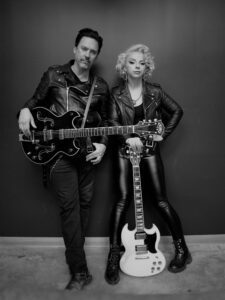 Have you already met Spencer before?
Have you already met Spencer before?
JD: No, we met him the first day at the studio. And he immediately became the third musketeer. Me and Sam brought all these songs in and he became the person who was gonna interpret the sonic aesthetic of the songs. We had a lot of trust and it worked out great.
He seems to have a very peculiar way of shaping this visual aspect of your songs.
SF: Nice! Peculiar is better than boring! No, really I thought he was perfect. We did in ten fast and wild days. We came in very prepared. We had written the songs except a couple we ended up finishing in the studio. Jon chose a very talented cast of musicians and everybody brought their A game. We worked hard, there was not much plaing around. When I go to the studio I’m usually very focused and I want to execute the job at hand, but that’s fun for me. When you’re finished you get this massive catharsis, it’s such a great feeling.
What makes Jon Spencer different as a producer from other you’ve worked with in the past like Luther Dickinson, Scott Billington or Martin Kierszenbaum?
SF: Well I’ve worked with many different producers and everybody has got a style, an approach. I’ve worked sometime with the same producer and they picked up new techniques from one album to the next. But Jon has a really cool approach with the amplifiers, we talked about the fact we’re two guitar players who want to be supportive to one another but also stand apart sonically. Still blend well and have unique voices on the records. He helped us to navigate that. But one of the coolest things I picked from Jon is his approach when we were in the vocal booth and how he likes to record vocals as more like an acting thing rather than getting the perfect performance and hitting specific notes. His whole thing is about getting as much attitude as possible to create songs that are intersting to listen to. It’s almost like character acting.
JD: Yes, it was like being in an acting class. He was doing the since memory thing…And asking things like “What were you feeling when you wrote this? I don’t give a damn if you hit the right note!” He was like a director for a film. It was inspiring. Sam and I are both conscious of parts that sound cinematic. I’m a huge Ennio Morricone fan and we add a little spaghetti western guitar part somewhere, we have stuff that sounds like it’s from new wave cinema. All of that is part of what we do.
When you came to the studio most you had already done most of the writing of did Jon have a part in that too?
SF: We did have three songs that we really put the ball on in the studio, I remember he walked in with “Riders” as a concept and he had a really cool chorus. And “Supadupabad” was like a jam. “Dangerous People” I had writtern this groove a long time ago but the song was terrible so I threw it away. We came back to the music which was kind of cool and we wrote a song that is in a way about us. I think we made something so much better about it. In the studio you feel that momentum when you’re making an album and things start to take shape, and all of a sudden you’re inspired to finish things you did not think you could finish when you walked in the door. We put a lot of work into the preproduction and the writing so we were pretty prepared to make it happen in a short time span.
And also, judging from what we heard at your gig in Milan, your common ground seems to be blues based, since you played songs from Screamin’ Jay Hawkins, Magic Sam, Slim Harpo or R.L. Burnside. Samantha you grew up in Kansas City and Jesse in Texas, both rich in the blues tradition.
SF: Yes, Jesse and I have a lot in common with our musical tastes. We came up in similar fashion in the music industry. We worked very hard growing our own band and coming up in the circuit. That’s just timeless great music. Like you said, I grew up in Kansas City and both of us are out there touring for such a long time that I don’t think either of us fully sound like the original artists; we are music fans and we like different styles.
The show was very dynamic and well constructed and you had a lot of stuff to pick up from your respective catalogues.
JD: Thanks, man. A lot of this has to do with being able to show up for each other’s visions. A lot of things get blown off because people don’t explore them enough or they don’t have the capacity to be in the moment, being present. Sam’s really good at that. So we do that for each other in the studio and on the stage. A big part of it is just having fun and when we’re having fun that’s the best.
You took it on the road even before the album came out officially.
JD: Yes, our second show ever was at the Whisky A Go Go on Sunset Strip in Los Angeles, Hollywood. That’s not normal. Our manager Reuben really threw us into the fire. It was sold out and Joe Bonamassa and Glenn Danzig were both on the side of the stage watching us. It was great but you know, at the end of the day we just want to be honest about what we’re doing and have fun. If you’re not doing these two things there’s a problem.
SF: We got lucky through this entire project. I don’t know if it luck or good chemistry with everybody that we worked with. Jesse and I did something that we kinda hard to do, writing these songs and making them good. I don’t feel like there’s any song on the record that you can just say “OK, throw it out”. We have a good collection of songs we’re both very passionate about. It could have been sketchy or a little rough. But it all worked out. I don’t take it for granted beacuse it takes a lot to get all these things to line up.
JD: It’s crazy. A lot could have gone wrong. Sam’s very similar to the women I grew up with, working class, no bullshit kind of person, let’s do this…That’s refreshings. I’ve worked with all kinds of different people and sometimes the process can be huge pain in the ass. But this time it’s just let’s plug in and go for it.
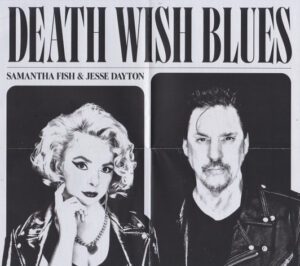 What kind of music were you listening to while you were writing the album? It’s a very diverse record, you have a ballad, uptempo numbers, but also a song like “Down in the mud”, which reminds me a bit of seventies Tony Joe White records on Monument.
What kind of music were you listening to while you were writing the album? It’s a very diverse record, you have a ballad, uptempo numbers, but also a song like “Down in the mud”, which reminds me a bit of seventies Tony Joe White records on Monument.
SF: Yes. We wanted to have an edge. I was listening a lot to New York seventies punk/rock’n’roll, a lot of North Mississippi blues, a lot of soul from Detroit and Memphis. The classic stuff. But sometimes when I write I don’t want to listen to anything, since I don’t want let any of it to influence too much the writing, before you know you’re writing a song that’s been written before. You got to step away a bit and think about what you want to say. And it’s hard that way, but it kinda helps you to come up with something that’s yours.
JD: I was listening to a lot of funky stuff from the seventies. Like you said, Tony Joe White is a big influence on me. You know everytime you hear me go “uh”, it’s Tony Joe. I think we were listening to some seventies Elvin Bishop records and different stuff, country melodies that we put in there…a big mishmash, a gumbo, stuff we both dig and we’d like to see if we could get away with it.
Now you’re going to keep touring.
Samantha: Yes, we’re touring until the end of time…it’s a big undertaking but that’s what we do.


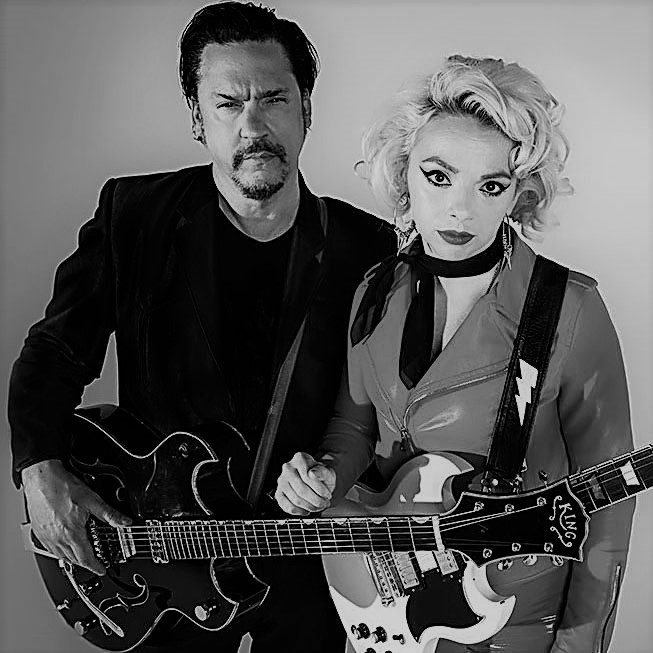
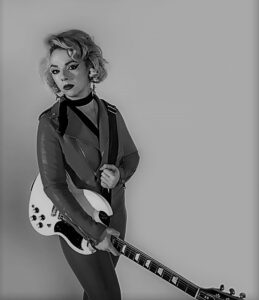

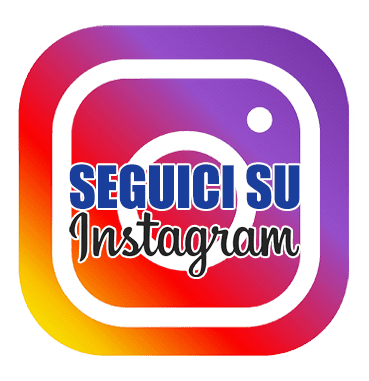


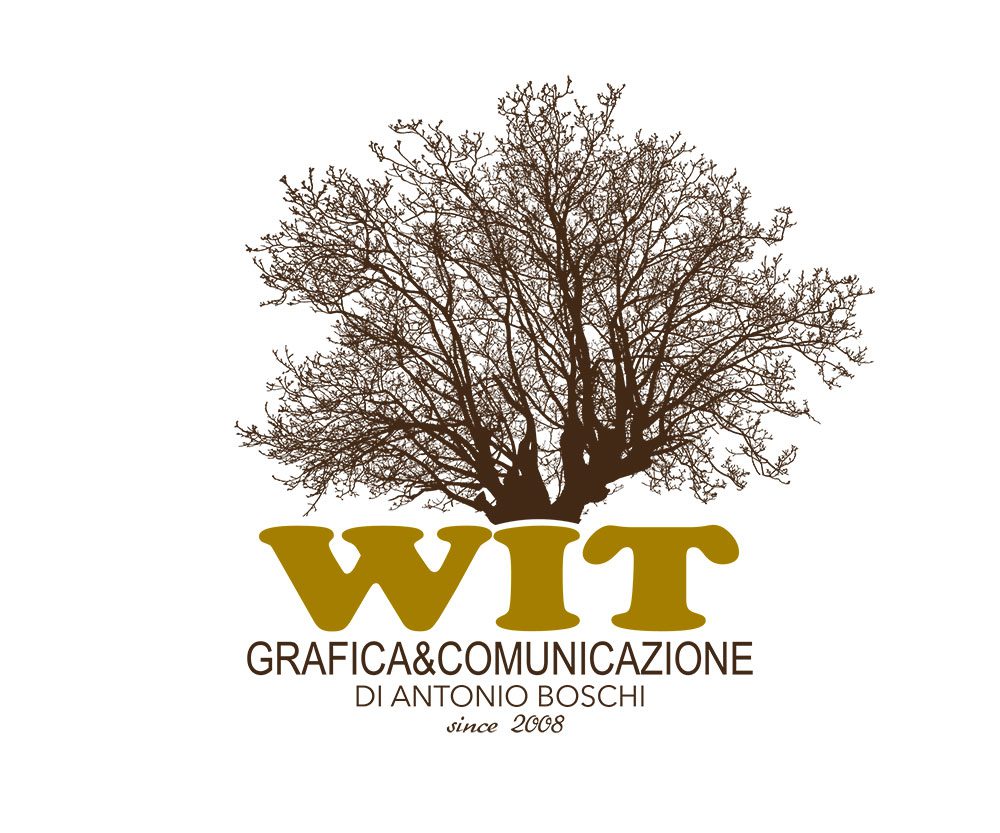
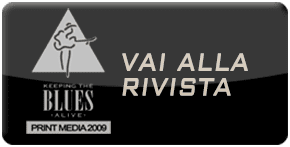


Comments are closed